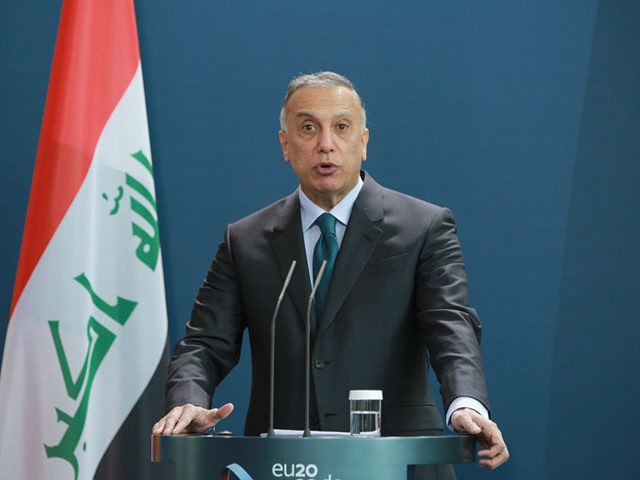Iraqi state media warned of a major energy crisis Tuesday due to reduced exports of natural gas from Iran.
Although Iran denied political motives for the cutoff and said it was simply a question of Iraq running behind on its payments, the move was widely seen as an effort by Tehran to increase political pressure against Iraqi Prime Minister Mustapha Kadhimi during a time of tension between his government and Shiite militia groups supported by Iran. A deal to resume Iranian gas exports was reportedly reached Wednesday afternoon.
Iranian officials insisted they have no desire to weaken or topple Kadhimi’s government, which appears to have won a power struggle with Shiite militia leaders by arresting several suspects in rocket attacks on the U.S. embassy in Baghdad. Kadhimi’s government made a point of demonstrating defiance to the militias after they threatened revenge for the arrest.
Tensions are running high because next week is the first anniversary of the death of Iranian terrorist commander Gen. Qassem Soleimani, who was eliminated by a U.S. airstrike while organizing attacks on Americans in Iraq with his Shiite militia allies. A major Iraqi militia leader was also killed in the strike.
Voice of America News (VOA) noted that even as Iranian Energy Minister Reza Ardakanian visited Baghdad to work on a payment plan for Iraq’s $6 billion in debt, Iranian Islamic Revolutionary Guard Corps (IRGC) Commander Mustapha Qa’ani was meeting with Shiite militia leaders.
Abolhassan Bani Sadr, a former president of Iran, told VOA that Tehran sees no need to destroy Prime Minister Kadhami’s “financially bankrupt and politically paralyzed” government, and is in turn too weak and impoverished itself to launch major attacks against U.S. interests on the anniversary of Soleimani’s death.
Iraq has been teetering on the edge of an energy crisis all year, as it depends on U.S. sanctions waivers to buy the energy supplies it needs from Iran, but the Iraqi government also wants to use its precarious position to pressure the United States into providing it with more aid and investment money to develop its domestic energy industry. As things stand, Iraq must import both natural gas and electric power from Iran. Ironically, low oil prices are one of the major reasons Iraq is having trouble raising the money it needs to improve its energy infrastructure.
The Iranian energy minister’s trip to Baghdad produced an agreement to pay Iraq’s debts and restore Iranian gas shipments, which were said to have been reduced by almost 90 percent over the past few days due to “technical problems” as well as late payments.
A senior member of the Iran-Iraq chamber of commerce told Reuters that Tehran accepted a barter deal to cover part of Iraq’s bills for natural gas. An Iraqi trade ministry official said the deal would include shipping a large quantity of barley to Iran at discounted prices.

COMMENTS
Please let us know if you're having issues with commenting.